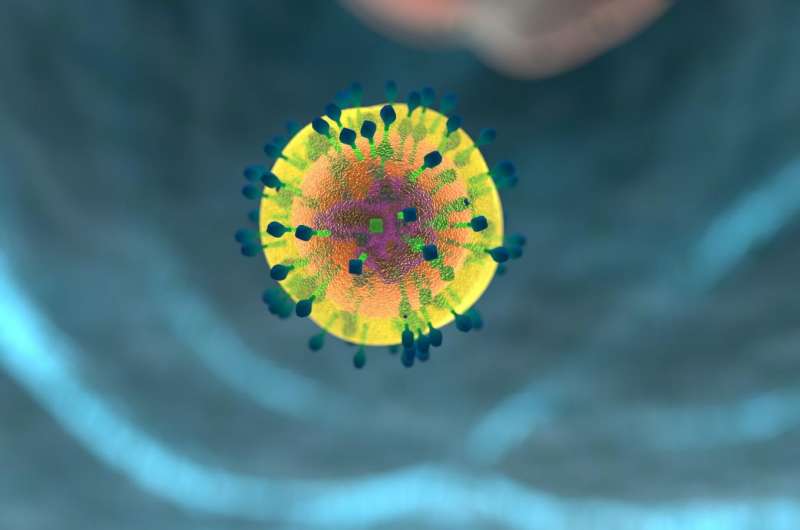This article has been reviewed according to Science X's editorial process and policies. Editors have highlighted the following attributes while ensuring the content's credibility:
fact-checked
peer-reviewed publication
trusted source
proofread
Study sheds light on the immune system's evolution

An article published by Technion researchers in Nature presents new insights about the evolution of the immune system. The team's findings highlight the modularity and flexibility of the evolution of immunity.
The study was led by researchers from the Ruth and Bruce Rappaport Faculty of Medicine, Prof. Shai Shen-Orr, Dr. Tania Dubovik, and postdoctoral fellow Dr. Martin Lukačišin, in collaboration with Rambam Health Care Campus and Carnegie Mellon University.
The immune system is complex, and its main function is to protect the organism from viruses, infections, and other hostile agents. At the core of this system are different types of immune cells, each with its own function, which work together to provide the necessary protection for the body.
The interaction between the immune system and the dynamic environment requires it to change constantly. The primary mechanism that drives changes in the living world is evolution, based on adaptation to environmental changes through the formation of mutations—random genetic changes.
However, due to natural selection, not every random genetic change is beneficial to the individual, and even if the change is beneficial, it is not preserved and passed on to future generations.
Immune system genes evolve faster than other genes in the genome, especially in mammals and birds, indicating the importance of the role of the immune system in adapting to the environment in health and disease.
Despite this, its evolutionary dynamics have not been studied in depth until now. This is largely due to the fact that the immune system is complex, and highly variable between individuals, which has resulted in a tradition of studying it in laboratory animals inbred for genetic uniformity and kept in a clean, bug-free environment.
The Technion researchers leveraged a unique model of genetically different mice, which harbors similar variation to that observed in humans.
Using this model, the researchers measured the variation in immune cell types between the mice and identified the genes that control the abundance of each immune cell type. Many of these genes affect the entire system through the regulation of cell division, migration, and death, by controlling the same cell type in which they are expressed.
However, within these genes, the researchers identified a set of genes that are expressed in one cell type and control another.
By scanning the genomes of 60 vertebrates spanning an evolutionary timeline of ~600 million years, the researchers demonstrated that the latter group is richer in mutations and provides a favorable space for evolution to generate novel interactions between cell types by increasing diversity without significant damage.
According to Prof. Shen-Orr and his team, "One of the important implications is that the ability of the immune system to evolve new functions is dependent more on the interaction between different cells than within a cell type, giving us an understanding of how complex modular systems evolve.
"This modularity was observed in the past in how genes and proteins evolve new functions, but it has never been studied in complex network systems, such as the interacting cells of the immune system."
Further research into immune system evolvability could thus not only enlighten the design principles behind immune responses, but also contribute to biomimetic solutions, e.g., in the system-of-systems approach to engineering, which, similarly, is based on interactions between functional units.
More information: Tania Dubovik et al, Interactions between immune cell types facilitate the evolution of immune traits, Nature (2024). DOI: 10.1038/s41586-024-07661-0


















